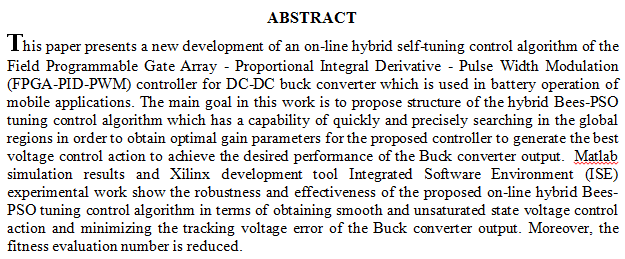
INFLUENCE OF SOME FACTOR ON SOMATIC EMBRYOS INDUCTION AND GERMINATION OF DATE PALM CV BARHI BY USING CELL SUSPENSION CULTURE TECHNIQUEe
In this work, (CdO)1-x (CoO)x thin films were prepared on glass slides by laser-induced plasma using Nd:YAG laser with (λ=1064 nm) and duration (9 ns) at different laser energies (200-500 mJ) with ratio (x=0.5), The influence of laser energy on structural and optical properties has been studied. XRD patterns show the films have a structure of polycrystalline wurtzite. As for AFM tests results for the topography of the surface of the film, where the results showed that the grain size and the average roughness increase with increasing laser energy. The optical properties of all films were also studied and the results showed that the absorption coefficient for within the wavelength range (280-1100 nm), The value of the optical power gap fo
... Show More (4)
(4)
One of the most important parameters determining structural members' durability and strength is the fire flame's influence and hazard. Some engineers have advocated using advanced analytical models to predict fire spread impact within a compartment and considering finite element models of structural components to estimate the temperatures within a component using heat transfer analysis. This paper presented a numerical simulation for a reinforced concrete beam’s structural response in a case containing Water Absorbing Polymer Spheres (WAPS) subjected to fire flame effect. The commercial finite element package ABAQUS was considered. The relevant geometrical and material parameters of the reinforced concrete beam model at elevated t
... Show MoreINFLUENCE OF SOME FACTOR ON SOMATIC EMBRYOS INDUCTION AND GERMINATION OF DATE PALM BARHI C.V BY USING CELL SUSPENSION CULTURE TECHNIQUE
This work is focused on studying the effect of liquid layer level (height above a target material) on zinc oxide nanoparticles (ZnO and ZnO2) production using liquid-phase pulsed laser ablation (LP-PLA) technique. A plate of Zn metal inside different heights of an aqueous environment of cetyl trimethyl ammonium bromide (CTAB) with molarity (10-3 M) was irradiated with femtosecond pulses. The effect of liquid layer height on the optical properties and structure of ZnO was studied and characterized through UV-visible absorption test at three peaks at 213 nm, 216 nm and 218 nm for three liquid heights 4, 6 and 8 mm respectively. The obtained results of UV–visible spectra test show a blue shift accomp
... Show More (2)
(2)
 (1)
(1)
Background: Malnutrition during human growth affects the size of the tissues at different stages of life, body proportions, body chemistry, as well as quality and texture of tissues. Teeth are particularly sensitive to malnutrition. Malnutrition may affect odontometric measurement involving tooth size dimensions. The aim of this study was to estimate the effect of nutrition on teeth size dimension measurements among students aged 15 years old. Materials and methods: This study was conducted among malnourished group in comparison to well-nourished group matching with age and gender. The present study included 167 students aged 15 years (83 malnourished and 84 well-nourished). The assessment of nutritional status was done by using body mass
... Show MoreThis manuscript studied the effect of U-CFRP wrapped sheet anchorage on the flexural performance of unbonded post-tensioned PC members subjected to partial strand damage and strengthened using CFRP Near-Surface Mounting techniques. The program includes six girders as a control girder, a girder with strand damage of 14.2%, and four girders strengthened by CFRP laminates using the NSM technique with and without U-CFRP wrapped sheet anchorages. The testing results show that the strand damage of 14.2% has reduced the flexural strength of the girder by 5.71%. The NSM-CFRP laminate has a significant effect on flexural strength by 17.4%. On the other hand, the application of end U-CFRP wrapped sheet anchorages improves flexural
... Show More (1)
(1)
 (4)
(4)
 (2)
(2)
The research represents an applied study to the urban scene of Baghdad city center within the area of (Al Bab Al Sharqi – Al Tahrir Square) through studying and identifying the levels of the reciprocal correlation of advertising signs impact on urban scene , then finding out the indicators and potential values which have made advertising signs as positive value by achieving the mechanisms of visual quality or a negative value by achieving mechanisms of visual pollution. And then examining the resulted visual perception defect reforming mechanism from it and identify the basic elements represented of the laws and legislation known worldwide. When presenting the problem, The research depends on: (Lack of clear perception
... Show More